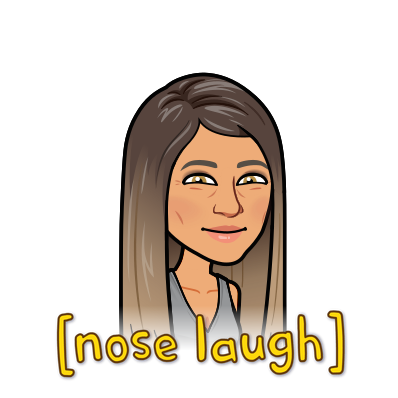Dialogue and movement in films and shows is so damn well rehearsed that I can never truly get immersed. Real conversations are awkward. We stutter. We fumble words. We forget people’s names, or what we were just talking about. Never for dramatic reasons. Just because we’re human. Script writers are hyper focused on fitting as much wit and humor as they can jam in there. I think some authors of books fall into the same trap. A 16 year old character somehow has the wit and wisdom of someone twice their age. I want more scenes made with genuine stumbling embarrassing awkwardness.
You know those moments where later people learn that the actor improvised the line? Or the movements? Best one I ever saw was Heath Ledger’s Joker failing to blow up the hospital.
[ He turns around. Well shit. Looks back at the device and mashes the button a few more times. Hospital finally blows up and he gets startled. ]
THAT’S THE SHIT. Give me more of that. Let me see the characters fuck up. Get uncomfortable. Make genuinely minor mistakes. Give me flaws. Give me something that isn’t witty. I’m tired of getting bashed over the head with polished scripts.
Animated movies tend to do this better to be fair. Lots to appreciate from the recent animated Spiderman movies for example.
This is one of the reasons I love the movie Fargo. The scene where the cop’s husband is eating cereal, she leaves and we sit with his crunching sounds for a bit, then she returns like “I forgot my keys” or something. I find that scene hilarious and the whole movie has lots of real moments like it.
I struggle with realistic dialogue where lots of people talk over each other tho, it gets very loud and incomprehensible very quickly, but that is usually the point of those scenes. I also struggle with that irl lol.
Hah that’s why I love Adventure Time
Takeshi Kitano is a Japanese director that likes to film actors when they are rehearsing scenes and then sometimes edits in those cuts as they feel more natural, he mostly does Japanese films but he did do an American gangster film called Brother, check it out
More LGBT+ relationships that aren’t the entire fucking plot of the movie. I wish relationships would develop around the plot narrative like we see heteronormative romances portrayed in action/thriller/etc movies. Right now we only really have movies where the entire fucking plot revolves around how gay someone is and their struggle with being gay and AcCePtInG tHeMsElVeS. It’s becoming trope-y and stale.
I just want to be pleasantly surprised someone’s LGBT+ in a movie and have the plot move on without fanfare like it would for a straight romance.
Animation does have a few good examples of this, Kipo comes to mind
Nimona? It’s not the main plot, but i think it was… Refreshing
I liked Sulu meeting his husband and kid in the last Star Trek movie. Not in the dialogue, not central to the plot. Just a sailor getting to spend some time with his family.
I’ve never really thought about it until now whether George Takei even responded to that scene. It turns out he did, and he was against it. Original Sulu wasn’t gay. I liked Simon Peggs answer to that also - Gene pushed us with as much diversity as he could, but a gay character was a step too far for the 1960’s.
I wonder what George Takei was against, considering he himself is gay.
George is. Sulu was not.
George liked the representation, but doesn’t like retroactively changing a character instead of making a new character. Which also happened subsequently in Star Trek Discovery.
Schitt’s Creek manages this really well, though it is a TV show and has the time to do it.
100% agreed.
I really liked Billy Eichner’s character in Parks and Rec for this. I don’t even think they mentioned him being gay directly other than his character mentioning a boyfriend or going on a date and use male pronouns or something like that. It was just a matter of fact that the was gay. There was no reveal, no plot about it, it didn’t affect the story. He was just a worker in the department that happened to also be gay.
It probably also helped that Billy Eichner is actually gay, and he was probably able to use his perspective to guide the directors and such to what he would want to see in a gay character on a sitcom rather than what the directors think the gay viewers want. Which is what I think is normally happening when a character being gay is a huge plot point. I think it comes from a good place. But I think to normalize being gay, being gay has to be portrayed as normal.
Problem is:
- You make a movie that is specifically LGBTQ themed where plot is about the characters queerness, and MFS on twitter complain.
- You have a character that just happens to be queer and does not affect the plot at all, and MFS on twitter will complain (Like Lightyear, or Strange World) and they will even lie and say that the movie has hardcore anal gay sex scenes or something.
You cant win with MFS because they just dont want to see queer people in media.
I am queer and I dont care if the series or movies is all about the queerness or if someone in the movie just happens to be queer. I want the story to be good.
Themes? I think the leitmotif is way underutilized. Even superhero movies don’t keep the same themes across appearances, and it really erodes the characters.
Yet another thing the lord of the rings movies absolutely nail. The evolution of the Rohirrim theme from a single lonely violin when Gandalf and co. arrive in Edoras to a grand orchestral arrangement over the assembled host gets me every time.
Now I know what I’m doing tonight!
deleted by creator
Several. Three dimensional characters. No one is truly all good or evil.
Eliminating overused tropes. If I see another scene where the woman screams at the man for getting her pregnant while giving birth or a timer display on a bomb, I think I’ll just stop watching.
And finally a little more actual humanness. By this I mean, many action movies have heroes that just move along when someone dies. There’s no reason a person can’t disarm a bomb, because he/she HAS to, but is crying during the act, maybe has to wipe tears away to properly see. People can have a breakdown, but still run away from danger at the same time. And afterward mourn the loss for more than 10 seconds. Even larger than life action heroes, would be made more relatable if they had nightmares about what they had done in the name of doing the right thing.
I probably have a lot more but can’t think about them at the moment. All I can say is I absolutely hate how often I can predict what is about to happen. I want to be surprised without the plot going completely off the rails.
How about a group of villains that don’t have much care when half their members are killed? I mean some of them likely were good friends. I always find that odd particularly is the movie was more serious and accurate.
Agreed.
I so feel this!
We’re watching Ragnarok (Netflix) which is a Norwegian series that ran for four seasons. The lead character is flawed and unlikeable in a lot of ways we’d never intentionally do in an American production. And there’s this character arc where one of villains is slowly turning good, while the hero begins to betray his morals. I don’t know if I’m giving the producers too much credit, but I see a lot of subtlety in the characters I don’t notice in US shows - behaviors which are infuriating but make sense in the context of the character’s core persona.
A shame it didn’t do well in Norway; one of the reviews bitingly said that it was bad and “felt more like a Danish series.” We’ve been really enjoying it as a breath of fresh air in the superhero genre, and just finished season 2. It got only 3 seasons.
As a postfix, yes, I’ve seen Heroes, and yes it’s a hard divergence from the typical genre. But I feel it mostly aims for shock value, and just took a trope and switched the premise - it didn’t substantially add character depth.
Here are two examples: in Ragnarok, we’re told repeatedly by a mother that her son has always had a strong sense of law and justice. Later, when the authority figures around him are telling him to do things and he’s just passively following their orders, it was infuriating until I realized: well, what do we expect him to do? Rebel? The second example is that the hero is not a deep thinker. He’s not clever, he doesn’t have witty one-liners… he’s literally a mouth-breather - he spends much of the show mutely standing there with his mouth open, until there’s a situation where he can be violent. But he’s Thor, and not American Thor. He’s not a figure known for his cleverness. I can’t think of a case in American film & TV where the leading protagonist is so flawed, in unattractive, un-sexy ways.
Childfree characters.
You should watch Rugrats, the main cast don’t have any children, only the supporting cast.
But not isolated to ‘career women’, ‘scarred by trauma from the past women’ or womaniser men. Characters that just don’t have kids because they don’t want to. They don’t need to be cool or deadbeat uncles/aunts either.
I also really really really want the idea that women will lie down and die/accept doom unless they have found out recently that they’re pregnant, to stop being used. Women have a will to live without gestating another lifeform.
So many of my favourite shows and characters have been ruined by the ‘oh she’s pregnant’ storyline. Because the writers clearly couldn’t think of any other life changing or character building arc than impregnation.
When movies and TV shows talk about self harm, they only talk about certain forms and certain motives. The issue will never be properly addressed that way, I’m pretty sure we’re all different.
How do you think they’d better address self harm, specifically?
By showing not everyone who does it is the same. Most portrayals show people having a “bad day” or some variant of that, they don’t address issues of stigma and the fact the burden shouldn’t be on the person in distress.
People being very gung-ho about a particular philosophy, then having their mind changed by experience.
It’s really hard to write a story about a person transitioning worldview because unless the audience is undergoing that same transition when they watch the movie, they won’t be able to identify with both the before and the after.
I mean, there are movies about people undergoing radical changes in outlook, but the audience doesn’t feel what the character feels, because the old philosophy is presented as obviously bad to the audience, and the character is presented as being asleep or brainwashed or something.
What I’m referring to is a character that is actually, fully portrayed as the good guy, in a way the audience believes, who later realizes he was doing bad things, and the audience realized it along with them.
An example of the pattern I’m not talking about is Equilibrium. Christian Bale’s character undergoes a radical transformation of his outlook on what is good, but his previous state (enforcer of the anti-emotion policy) is depicted as obviously bad to the audience.
If I understand you correctly, I think the following might qualify.
Breaking Bad, Imposter, American History X, American Psycho and Fight club. All pretty popular. You might have seen them.
I’ve seen Breaking Bad recently. Who is it you think changed?
If you’re thinking of Walter, I’d describe his philosophical change as the emergence of his monster, but without control. He just descended into evil.
I’m hoping for a story where someone gets better.
Fight Club is a good example though. (Spoilers) Narrator has found a guru, it’s legit depicted as freeing and enlightening, then you slowly realize the guru is an unhinged psycho without moral grounding, and Narrator wins by killing his guru.
American History X I haven’t seen in a long time so I barely remember. But Norton’s character transforms there as well if I recall. Thing is, his previous state as a Nazi skinhead isn’t very sympathetic to the audience.
How are you figuring this fits for for American Psycho?
(I haven’t seen Imposter)
Well I did preface it by pondering if I fully understood your meaning. I guess I didn’t catch the part about changing for the better.
In breaking bad my thought process was that, at least from the viewer’s point of view Walter was the good guy, fighting for his life against cancer, and maybe he was, but in the end, not only was he doing evil, but enjoying it.
So my suggestions were I think more from the viewer’s point of view than the character’s. Imposter is the same, but if you enjoy sci-fi, I think it’s worth a watch. I’d give it an 8. But I haven’t seen it in a long time.
I feel like movies, comic book movies in particular, are structured to condition people to resist changing their worldview, especially views that society wants the audience to have.
Like Batman movies are notorious for this because they’re always about pressuring Batman to kill and his refusal to for stupid reasons, even when it is obviously the morally correct thing to do. And producers do it because they don’t want the audience to think killing evil people is good – can’t enable the peasants to guillotine their masters, after all.
I genuinely wish we’d get a movie that kind of does what you’re asking; that has a character who holds socially correct worldviews and who rejects those views in a way that philosophically makes sense. A movie that sincerely questions those views.
I think the closest we ever got to something like that in modern film is Fight Club.
However the interaction with Raz Al-Gul in Batman Begins did have a little transformation. I haven’t seen it in a really long time but I remember it being a darkening/opening of Wayne’s outlook on life.
And then Batman was completely derailed at the end of TDK leading to the mess that was TDKR.
I don’t think the Nolan trilogy was well thought out and he was just winging it toward the end. Begins and TDK were good, granted, but you can still tell.
Still waiting to see a zero-gravity martial arts scene.
Inception
I was thinking about the hallway fight scene in Inception, but it’s not quite what I want. The gravity was changing direction the whole time they fought, but it was there. I want to see crazy flailing flights across the room and grapples where the only way to get control over your movement are to push off against your opponent.
ITT: people who only watch Hollywood movies, apparently













